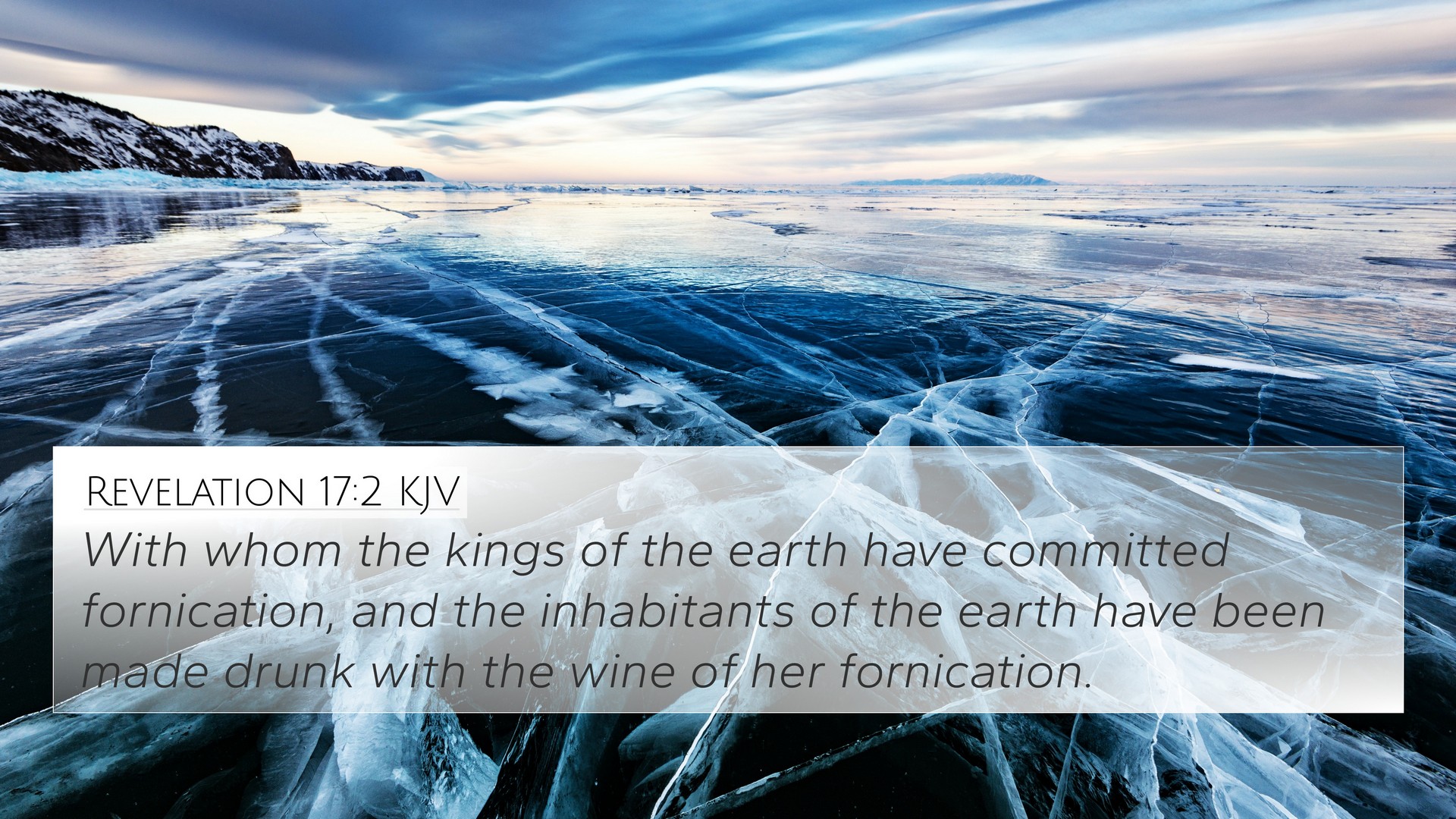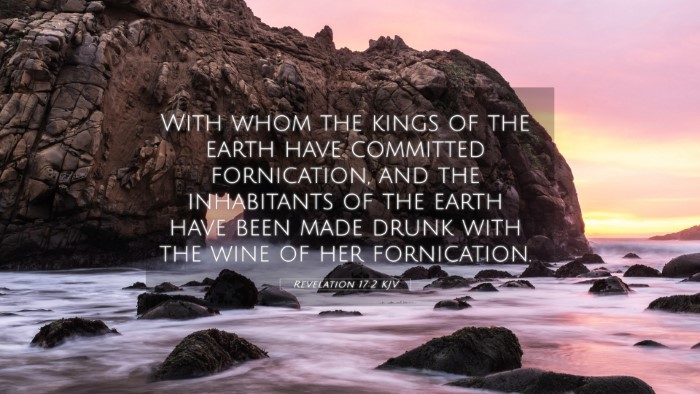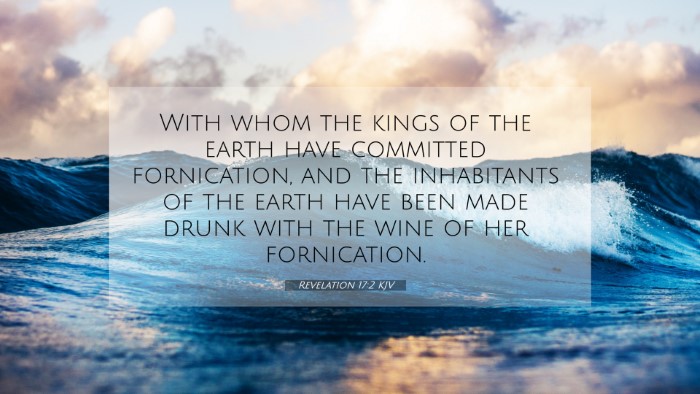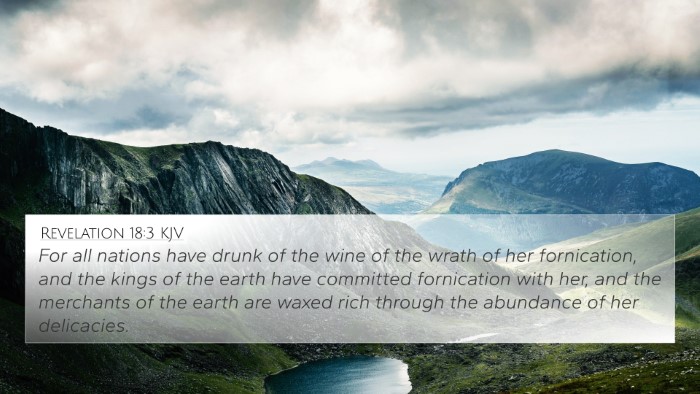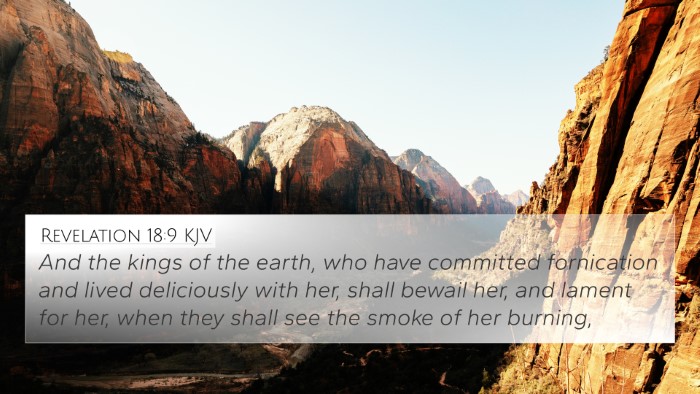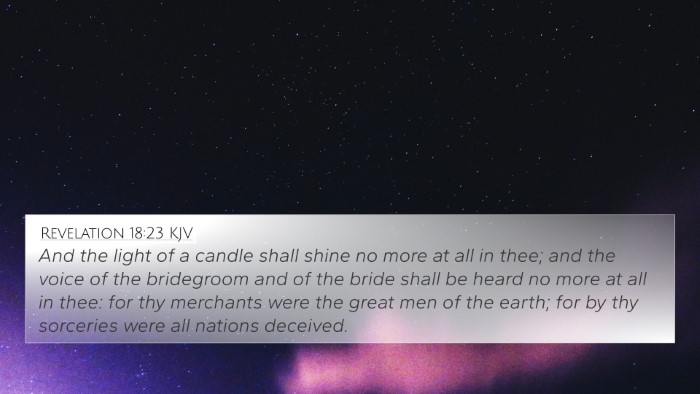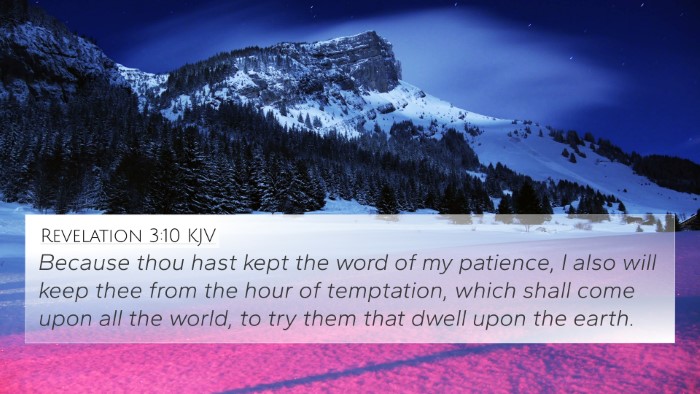Understanding Revelation 17:2
The verse Revelation 17:2 states: "With whom the kings of the earth have committed fornication, and the inhabitants of the earth have been made drunk with the wine of her fornication." This verse is rich in symbolism and metaphor, referring to the relationship between spiritual corruption and worldly power. Furthermore, it serves as a pivotal point for understanding the broader themes present in the Book of Revelation and the overall Biblical narrative.
Context and Background
In this passage, John describes a woman, often interpreted as representing a religious or political system that lures nations and worldly powers into moral and spiritual compromise. The imagery of fornication signifies an unfaithful relationship with God, drawing parallels with Old Testament references to apostasy where Israel is described as an unfaithful spouse.
Commentary Insights
- Matthew Henry: Henry emphasizes the spiritual adultery represented by the woman. He elaborates on how leaders (kings) are seduced into sin by her allure, highlighting the serious consequences of such unions.
- Albert Barnes: Barnes interprets "the wine of her fornication" as the intoxicating influence of false doctrine and immoral practices that lead nations astray. He connects this with the broader theme in Revelation of judgment against such corrupt practices.
- Adam Clarke: Clarke sees this as a metaphor for idolatry and the seduction of political powers by religious entities. He emphasizes the destructive nature of this alliance, resulting in the moral downfall of societies.
Spiritual and Theological Implications
Revelation 17:2 can be seen as a warning regarding the dangers of compromising one’s faith for the sake of political or economic gain. The term "drunk" suggests a state of confusion and loss of self-control, which can lead to widespread moral decay.
Related Cross References
This verse has multiple Biblical cross-references that provide additional context and support for its themes. Here are some important ones to consider:
- Jeremiah 3:9: Describes Israel's infidelity as spiritual adultery.
- Hosea 9:1: Highlights the consequences of unfaithfulness in worship.
- James 4:4: States that friendship with the world is enmity with God.
- 1 John 2:15-17: Warns against loving the things of the world.
- Revelation 14:8: Speaks of the fall of Babylon, directly tying into themes of corruption.
- Revelation 18:3: Similar language regarding the influence of Babylon on nations.
- Ezekiel 16:30-32: Describes Jerusalem’s unfaithfulness using similar imagery of prostitution.
Connecting Themes Across Scriptures
The themes of spiritual fidelity and the dangers of alliances with worldly powers are prominent throughout Scripture. Cross-referencing these critical texts reveals a cohesive narrative around the necessity of remaining faithful to God's commandments and the consequences of spiritual compromise.
Tools for Bible Cross-Referencing
To fully appreciate the connections within the Bible, various tools can assist in cross-referencing, including:
- Bible concordances
- Bible cross-reference guides
- Cross-reference Bible study materials
- Bible reference resources
Conclusion and Summary
Revelation 17:2 serves as a poignant reminder of the dangers posed by spiritual infidelity, particularly in relation to worldly authorities. By studying this verse alongside its cross-references, believers can garner a deeper understanding of God's call to holiness and the severe repercussions of straying from divine truth.
